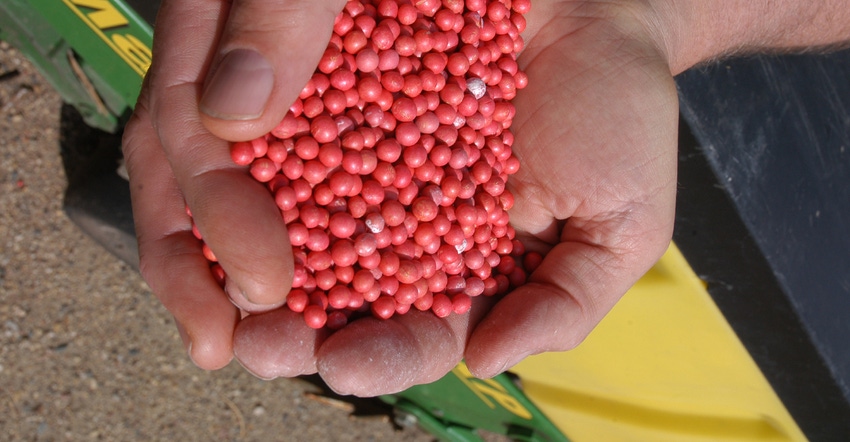
Seed companies are offering soybeans already treated. Many include insecticides. Others give you an option whether you want seed treated. However, tighter budgets force farmers to scrutinize every input cost. They must ask the tough questions.
Do soybean treatments prevent yield loss or provide extra yield? Putting it simply, do seed treatments provide a return on investment?
For farmers with soybean cyst nematodes (SCN) in fields, the answer is “not really.”
“The return on investment is minimal at best, in a lot of cases,” says Kaitlyn Bissonnette, University of Missouri Extension plant pathologist. “The goal is to reduce populations of SCN. We have not seen that.”
Treatment trials
Bissonnette and other researchers, along with the Iowa Soybean Association, tested Clariva and ILeVO seed treatments for SCN management in university small-plot experiments and in statewide strip trials. They measured reproductive factor or the number of eggs at the end of the season divided by the number of eggs at the beginning of the season, and yield changes per acre.
The results showed variability in both SCN reproduction and yield in individual test plots and by location. Some reductions in SCN reproduction were significant, Bissonnette says, but inconsistent.
Overall, the reproductive factor for Clariva saw a decrease in just two of 27 sites. For ILeVO, it was two of 18. In terms of yield, in two sites, Clariva provided a decrease in yield of 1.4 bushels per acre. ILeVO increased yields by 3.7, 2.8 and 2.9 bushels per acre in only three of the test sites.
Bissonnette says that in order to see the numbers work out for return on investment, farmers need to see a consistent estimated yield increase of 2.1 to 2.6 bushels per acre. “There was just no significant yield increase across the plots,” she says.
Control options
So if seed treatments do not manage SCN, what should farmers do? Looking at two variables can help.
Variety selection. Consider SCN-resistant varieties. These can help reduce SCN reproduction during the growing season, but they do not eliminate reproduction. Bissonnette warns that planting the same resistant varieties can lead to SCN resistance. “Nematodes in the soil adapt to survive,” she says. “If a farmer plants the same variety with the same resistance source every year, the nematodes will become resistant. Think glyphosate.” She recommends changing resistance sources — Peking, PI 88788, Hartwig — or the resistant varieties you use.
Rotate crops. It sounds like a broken record, but the way to break the SCN cycle is to rotate crops. University researchers found SCN egg numbers can be reduced between 5% and 50% in the first year after corn in rotation. Bissonnette says the effectiveness of rotation drops in the second and third years of the rotation, so it is important to manage when egg numbers are low. Rotate with a nonhost crop such as corn, alfalfa or small grains.
“There is no cure-all, no silver bullet,” she says. She suggests applying seed treatments on a couple of strips of a field where SCN is present. “You have to see if it will work in your field.”
About the Author(s)
You May Also Like






